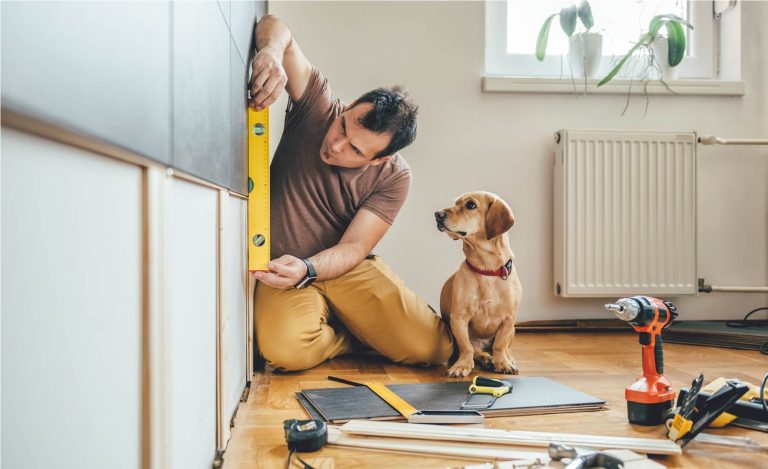Purchasing a home is an exciting milestone and surely you are eager to get started on some home improvements and DIY projects! It can feel overwhelming to know exactly where to begin, especially as a first-time homeowner without much experience in managing such tasks, but we’ve got you covered with a list of tips to help you get started.
1. Plan Out Your Budget
Home improvement projects can quickly get out of hand financially if you are not conscious of the size and involvement, so it is imperative that you establish a well-planned budget before getting started. Assess major details like the cost of materials, permits, labor, and even time, and try to be as realistic as possible setting aside additional funds for any unseen costs.
2. Prioritize Maintenance Tasks
Proper maintenance can prevent costly repairs down the road so it is crucial to focus your attention on ensuring the vital organs of a home are in good shape. Regularly inspect gutters, make sure the HVAC system gets regularly serviced, tend to any cracks or leaks, and maintain the life of the roof as best as you can.
3. Start Small
Of course, it is tempting to dive right into big home improvement projects from the jump, but it is best to start small and work your way up, especially for first-time homeowners. Simple DIY projects like painting a room or installing new cabinet hardware, and lighting fixtures can make a major impact without blowing your budget on one project.
4. Research and Establish Your Go-to Contractors
If you are hiring contractors for any home task whether it be to paint the exterior, assess any plumbing or electrical work, or come out to spray for pest prevention, be sure to do your research ahead of time. Get recommendations from family, friends, and neighbors so that you are hiring a trusted service and individual who you can continue to call upon in the future.
5. Focus on Energy Efficiency
Energy efficient upgrades are an investment that not only reduces your environmental impact but also saves you money on utility bills in the long run. Installing energy-efficient appliances, switching to LED light bulbs, sealing any air leaks, upgrading windows, and adding insulation can make a huge difference in making your home more energy efficient.
6. Get Safety Features Up to Date if They Aren’t Already
It’s crucial to prioritize any safety features designed to protect your family and your home. Install and maintain smoke detectors throughout your home, carbon monoxide detectors near all bedrooms and fuel-burning appliances, and consider adding a home security system. You should also update all locks to ensure every entry point is secure.
7. Pest Prevention
Investing in pest prevention materials and precaution is essential to ensure a comfortable and clean living environment. Installing screens, sealing cracks and holes that might be possible entry points, and scheduling regular inspections from professional pest control allows you to stay ahead of any possible infestation. Minor tips also include securing trash, properly storing firewood, and investing in bed bug mattress encasements make a huge impact on protecting your home from unwanted pests.
8. Enhance Curb Appeal
Curb appeal not only makes your home appear more attractive but can also increase its value. Planting flowers, trimming back hedges and trees, and keeping a manicured lawn will go a long way. Adding a fresh coat of paint to your front door and a couple of planters to the porch will step your curb appeal up a notch and make a big difference.
9. Stay Organization
There is a lot to keep track of in the whirlwind of home improvement, and it is imperative that you keep organized. Catalog receipts, contracts, permits, inspection dates, quotes, and keep track of a timeline for each project. Be sure to label and store tools and materials properly and remain in constant contact with the vendors or contractors involved in these projects.
10. Think Long-Term
When making home improvements, it is important to think long-term. Always go for quality over quantity by choosing durable materials that will stand the test of time and not require replacement one year down the line. Invest in quality appliances and fixtures and consider the possible return on investment for major projects. These decisions will save you money and a headache in the future.
Most importantly, enjoy the process and reward of pursuing your home-improvement projects and making your first-time house a home.

